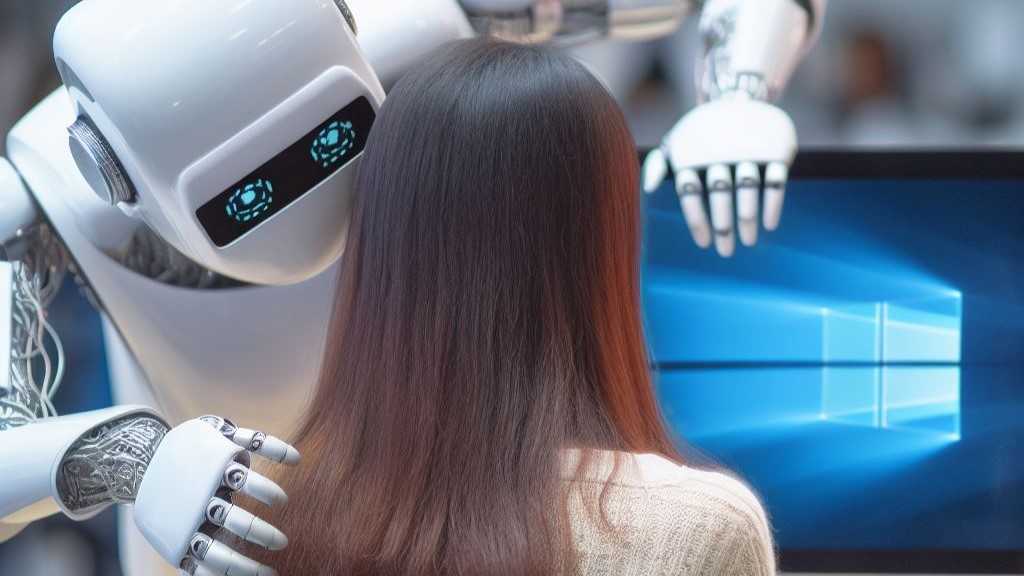Does AI have a future in newsrooms amid misinformation reports? Microsoft certainly thinks so and even has a tuition-free AI-focused program for journalists on how to incorporate it into their work
Microsoft works with journalists to create the newsrooms of the future with AI.

All the latest news, reviews, and guides for Windows and Xbox diehards.
You are now subscribed
Your newsletter sign-up was successful
What you need to know
- Microsoft recently published a new blog post highlighting how it intends to work with journalists to create newsrooms that leverage AI technology.
- The tech firm is working closely with Semafor to create AI tools to make the research and reporting process easier for journalists.
- Journalists will also have access to a tuition-free program where they'll learn how to incorporate the tech into their workflow.
Microsoft just published a new blog post highlighting its efforts to work closely with journalists and publications to create "the newsrooms of the future with AI." The company adds that the programs are designed to help find and refine the procedures to use AI responsibly in journalism.
Right off the bat, Microsoft is set to work with Semafor to create AI-baked tools designed to hasten journalists' research process. This also cuts across finding credible sources for stories and translation of information.
The Financial Times went a bit deeper on Semafor's usage. It noted: "Semafor journalists will use AI tools to quickly search for reporting and commentary from other news sources across the globe in multiple languages ... with Semafor's reporters summarising and contextualizing the different points of view while citing its sources."
In that Financial Times article, Semafor co-founder Ben Smith remarked on the reasoning for the project that it's trying to go after "... this really splintered, fragmented, rushed efforts to get the first sentence of a story out for search engines . . . and then never really make any effort to provide context." Instead, the news site wants to "go the other way" in getting the facts out ASAP along with "meaningful analysis."
The tech firm is also unveiling The Craig Newmark Graduate School of Journalism (CUNY), which intends to impact seasoned journalists with knowledge on incorporating generative AI into their workflow. The tuition-free hybrid program takes three months and will run under Nikita Roy, a data scientist and host of the podcast Newsroom Robots.
Additionally, the Online News Association intends to start a year-long AI program to bring journalists together and create space to brainstorm and talk about AI policies, regulations, and solutions. This will also provide the platform to talk about the best practices and use cases for the technology in journalism.
There's also the GroundTruth Project, which Microsoft intends to use to send local journalists across newsrooms all over the globe via its Report for America and Report for the World programs. The company aims to showcase how efficient and sustainable it is to leverage AI tech when reporting news, now and in the future.
All the latest news, reviews, and guides for Windows and Xbox diehards.
And finally, Microsoft is placing its support behind Nota, a startup specializing in incorporating "high-quality" AI tools into newsrooms. The tools are designed to promote newsroom efficiency and simplify the reporting process. As we speak, Nota has already expanded its reach to more than a hundred newsrooms. As pointed out by Microsoft:
"Its suite of tools is helping newsrooms reach new audiences, expand social media presence, and better tailor content to audience information needs. Nota will soon release a new tool called PROOF, an assistive recommendation widget that will give real-time tips to journalists and editors about how to better reach audiences with their content through readability, SEO analysis, link integrity, and more."
Analysis: Are we ready for AI in our newsrooms?

Generative AI is undeniably taking the world by storm and is now more widespread than ever. However, the technology has received mixed feelings for many reasons, including the loss of jobs to AI, the potential danger of it spiraling out of control, and privacy and safety concerns.
Suppose the last few months are anything to go by. In that case, Microsoft is fully placing its bet on the technology, especially after making a multi-billion dollar investment and extending its partnership with ChatGPT maker OpenAI.
As we all know, AI-powered chatbots like Microsoft Copilot (formerly Bing Chat) and ChatGPT heavily rely on information and resources from the internet for training. When Microsoft launched its full-fledged AI assistant, several users complained, citing instances of the chatbot hallucinating or outrightly giving wrong responses.
While most of these issues have been dealt with, there's still a bone of contention. AI chatbots can curate accurate and human-like responses to virtually any query based on their training from internet sources. It's a significant concern for websites and blogs because these tools steal source/lift information from trusted websites and present it to a user quickly and precisely, defeating the essence of going through an entire article.
However, the experience hasn't been entirely smooth sailing. Multiple reports surfacing online from users citing that these tools are getting dumber continue to emerge despite shipping new updates ever so often and even using new LLMs. At the end of last year, The New York Times publicly announced its plans to sue Microsoft and OpenAI over AI unfairly using its copyrighted material, negatively impacting the outlet monetarily.
OpenAI openly admitted that it's virtually impossible to create tools like ChatGPT based on copyright-free material alone while making its submissions in court. We also recently learned that OpenAI might be in the middle of a megadeal worth tens of millions of euros with German publisher Axel Springer. The deal will allow OpenAI to access the publisher's articles, which will be used to train its AI models.
In the past few months, AI chatbots have erroneously recommended a Food Bank as a tourist attraction and even asked readers to participate in a poll to determine the cause of a woman's unfortunate passing. Let's not forget the AI-generated article on Microsoft News (MSN) that referred to a deceased NBA player as useless.

Kevin Okemwa is a seasoned tech journalist based in Nairobi, Kenya with lots of experience covering the latest trends and developments in the industry at Windows Central. With a passion for innovation and a keen eye for detail, he has written for leading publications such as OnMSFT, MakeUseOf, and Windows Report, providing insightful analysis and breaking news on everything revolving around the Microsoft ecosystem. While AFK and not busy following the ever-emerging trends in tech, you can find him exploring the world or listening to music.

